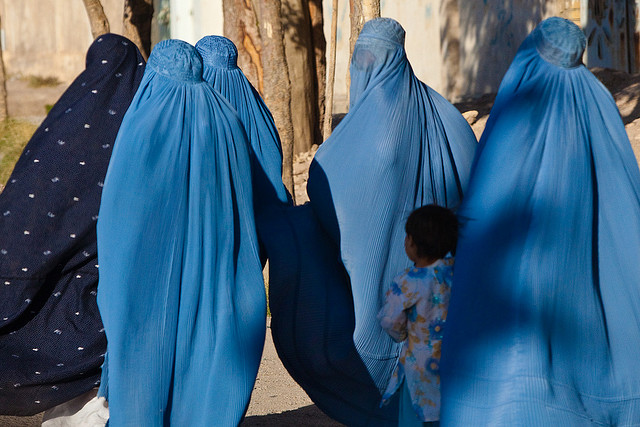The ordeal of Turkmen women in Kabul
The Taliban's repression of women's rights is even more evident for those of a different ethnic origin. Hundreds of thousands of ethnic Turkmen live in the northern regions of Afghanistan, and no one is concerned with the defence of their rights, not least because of the frosty relations with Ashgabt.
Ashgabat (AsiaNews) - The condition of women in Afghanistan has become particularly critical since the return of the Taliban, and according to UNESCO, 1.4 million girls have lost the chance to receive a school education since 2021. In fact, 15 August marked three years since the Americans fled after 20 years of administration following the attack on the Twin Towers in New York, leaving the country in the hands of the radical Islamic government and effectively creating one of the world's most impressive humanitarian crises.
Women have been completely ousted from social life, are not allowed to study or work, are not allowed to visit public parks and sports facilities, and are forced to move around wearing clothes that cover every part of their bodies and faces. If a woman wants to go to the shop or the market, she can only do so with the accompaniment of her father or one of her brothers. The repression of women is even more evident for those of a different ethnic origin, especially for Turkmen women, as a resident of the town of Mazar-i-Sharif in Balkh province, 26-year-old Djemal, tells Radio Azatlyk.
‘Without the Taliban, I would be a doctor with two years of work experience, while now I am forced to stay locked in my house as if I were in prison,’ she says. For the first year, the Taliban had allowed her to study, allowing her to complete her medical studies in her city, but the government then refused to hand over the diploma. ‘With other comrades we have made numerous requests, but we don't even know who to turn to, because women are ignored everywhere, as second-class beings, and if we are not even ethnic Afghans, then we go down to the third level and even lower’.
Djemal knows at least 13 other Turkmen girls who finished their studies in various specialisations, without being able to receive a diploma and get hired in any job. Only in some cases do the Taliban grant permission, and female doctors are only allowed to work in women's clinics, but the Turkmen women are also excluded from this opportunity because they ‘do not have a diploma’. ‘In the future we see only a great darkness,’ says Djemal, “we live with our faces covered, not only because of the obligatory clothes”.
According to her testimony, there are many single mothers living in Afghanistan today with their daughters, who are forced to wait for their husbands or sons to arrive once a week in order to put their noses outside their doors. If they go out alone, the Taliban stop and punish with whippings. Hundreds of thousands of ethnic Turkmen live in the northern regions of Afghanistan, and no one is concerned with the defence of their rights, both because of internal repression and the decidedly frosty relations between Ashgabat and Kabul.
The prices of foodstuffs and basic necessities in the areas inhabited by the Turkmen are much higher than in the rest of the country, and in order to survive, one has to work very hard, which is even more difficult because of the segregation of women. The first Taliban government had excluded practically all other nationalities, now some glimmer of hope has opened up for the Turkmen as well, without this leading to a real improvement in the situation so far.
Some Turkmen and representatives of various ethnic groups are involved in local administrations and other state bodies, but without any guarantee of continuity or real effectiveness, considering that to date the government in Kabul is not internationally recognised. An at least partial recognition of women's rights, such as access to education, together with respect for ethnic minorities, could make the Taliban system more acceptable to the entire world community, and especially to Central Asian countries.
Photo: Flickr / Global Panorama
13/02/2017 17:18
24/10/2025 19:29
15/01/2009







.png)










